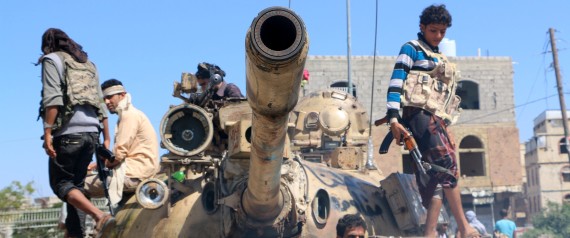Date: Wed, 18 Nov 2015 18:37:49 +0100
Posted:
The UNDP recently held its Resilience Development Forum (RDF), looking at how the international community can support the many millions of Syrians displaced by civil war. It has taken over four years of conflict but delegates at the RDF at least now recognized that only a political solution can bring an end to the fighting and give hope to the displaced that they might return home and build a future in Syria. Whether the need for a political solution will be recognized by the peace talks scheduled to restart soon in Vienna is, of course, another matter entirely.
It is unfortunate that it has taken the crisis facing Syria's displaced millions and now the spread of ISIS's brutality to Paris and Beirut for the world to again focus efforts on ending one of the Arab region's most brutal and deadly conflicts. It was only when Syrian refugees started reaching European shores that the international community began again to look seriously for a solution. As the UNDP conference concluded, I was left to wonder what disaster will it take for the world to seek an end to the region's forgotten conflict: the civil war currently raging in Yemen.
Though it has long been beset by weak state institutions, Yemen has traditionally had a strong society that has maintained its clan structure. This despite the radical changes modern Yemen has undergone, from the end of colonialism, its division into two states, to unification and internal conflicts that have rocked the country since. However, since 2004, a sect within Yemen's Shia minority -- the Houthis -- has engaged in an insurgency that escalated into a civil war after they overthrew the country's government last year.
The coup ultimately led to Saudi-led intervention in support of Yemen's deposed government, creating a conflict in a sense very similar to that in Syria, pitting the previous government, backed militarily by a coalition led by Saudi Arabia that includes the United Arab Emirates, Bahrain, Jordan and others, against the Houthi rebels (alleged by the Saudis to be supported by Iran), and a third factor, Yemen's long-established militant extremist groups, including al Qaeda and potentially now ISIS.
The escalation in the conflict has seen thousands more suffer the effects of war, and led to the UN's humanitarian lead in Yemen accusing Saudi Arabia of breaching international law following air strikes on heavily populated areas. As if civil war and bombing campaigns were not enough for the Yemenis to endure, earlier this month the country's fifth-largest city was hit by a cyclone, plunging 1.4 million people into desperate need of UN assistance. Despite this, the conflict has been all but forgotten.
It surely should not take a humanitarian disaster on the scale of Syria or for European cities to bear witness to the appalling crimes of ISIS to force Yemen on to the international agenda.
As with Syria, the solution lies not with internationalizing the conflict, but in internationalizing the political and peace efforts. To do so there are a number of no doubt uncomfortable truths that the Saudis will need to recognize, not least that the Houthis are not simply going to vanish, and that Iran's influence in the region is now a fact of life for Arab countries. The Iranians too should know that the region cannot go on supplying the venues for its proxy conflicts; peace negotiations are about bargaining, it is for all parties to make concessions in favor of the wider goal of peace in Yemen.
At the moment, there is little hope for the Yemeni people. Though UN Security Council resolutions exist to protect vulnerable groups in conflict -- such as refugees and women at risk of sexual and other gender-based violence -- they are near worthless when there are no local or international institutions prepared or capable to implement them. In circumstances where there is no effective government to protect people in conflict, then surely the international community has a responsibility to implement these standards and protocols?
Rather than escalating the conflict, foreign intervention should be concerned with promoting dialogue, not drone strikes. Just as in Syria, the people of Yemen will need support to bring an end to the conflict and build lasting peace. It is only by involving all parts of Yemeni society -- including the women of Yemen -- that a lasting strategy can be established to end not only the war, but years of internal violence. This must start with comprehensive demilitarization in a country where radicalization has been exacerbated -- not solved -- by escalating conflict. But pressure to switch resources from military interventions instead to political efforts is -- like international media coverage of the conflict -- almost non-existent.
The people of Sa'ada shelter from Saudi bombs while Houthi rockets strike densely populated parts of Taizz, and the people of Sana'a recover from suicide bombings claimed by ISIS. Can the world even be said to be tolerating these atrocities if it is not even aware of the suffering of the Yemeni people? There needs to be an urgent effort to bring to the table the tribes, the women, the politicians and the factions, there needs to be action on behalf of the neighbouring powers to put aside their narrow interests for the benefit of the Yemeni people.
If only the world can forget about the politics as effectively as it it has forgotten about the Yemenis.

